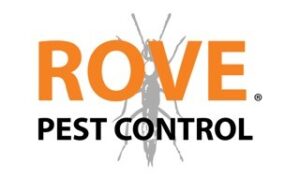As winter is now in full swing, lice problems tend to increase. Here are a few lice prevention tips you can use.
Getting lice isn’t a new problem, or just for kids
There have been cases of head lice for thousands of years dating back to ancient Egypt, and beyond! Getting head lice is a problem that is here to stay. You can reduce your family’s chances of getting lice with these prevention steps!
Winter is the time to be on the lookout. It is a heightened transfer time for all furry mammals from livestock to people. As things cool off, we tend to tighten our proximity to others indoors to increase warmth. We also wear more hats, and are more likely to share hats or jackets. The winter hats we wear are better lice transporters than typical summertime hats.
Once lice gets in, it can cause problems quickly. Female lice have been known to lay from 3 to 6 eggs every day until death. So one lice could turn into hundreds rather quickly.
Lice also seems to be more common with girls and women, it’s usually thought that is because they have longer hair, which gives lice more opportunities to attach themselves from another source.
Head lice can’t jump or fly, so you shouldn’t need to worry as much about them unless you have direct contact with someone who already has an issue.
Besides the issue of tiny bugs in your hair, which no one is too excited about, lice also can cause rashes from reactions to their crawling and biting as well as excessive scratching. The good news is that lice is not known to carry or transmit disease despite out dated beliefs about links to plague or other diseases.
A few tips on how to prevent lice for kids
Lice isn’t as common of an issue among adults because lice tends to transfer from one person to another through touch or from shared clothing, however children tend to get and spread lice the most because they are in close contact with lots of other potential carriers at school, church, daycare, gyms, etc. and often don’t understand where lice comes from (or simply don’t think about it).
More often than not, simply educating your children can make a big impact on them getting or spreading lice. Teaching your children not to share items that commonly spread lice is the most effective prevention method.
Things such as hats, combs, hair brushes, jackets, pillows, headbands, etc. should all be on the do-not-share list. Also, teach them to be on the look out for lice on any of these things as well.
I remember in school as a child we had spots to put all of our winter gear, but we never had assigned spots, it was always first come first serve. In cases like this, hats and jackets could get switched around and the possibility of spreading lice from one student to the next could drastically increase. Even if items do not get switched, the simple contact on close hooks can be sufficient for lice transfer.
More lice prevention tips
Knowing if someone has or has had lice recently is another key way to avoid getting or spreading lice. Avoiding head to head contact with someone who has lice or is being treated is another way to prevent lice from spreading.
Getting checked regularly is another way to prevent lice. Lice tend to multiply and spread quickly, so the sooner you can catch them before they take hold the better.
If you do suspect or you have been in contact with someone with lice, be sure to put all of your clothes that could have had contact through the wash with hot water, and dry the clothes on high for 30 minutes or longer to kill off any lice that may be present.
Lice isn’t something you need to live in fear of, but if you know what to look for and how to prevent it, your chances of having any issues with it go dramatically down.
Did This Blog Help You? We would greatly appreciate if you could comment below and share on Facebook
Have a question for us? Be sure to reach out on Facebook: www.facebook.com/RoveMinnesota
P.S. Have a pest issue? As a first time customer with Rove Pest Control – Click Here to get $50 off your initial service!
Did you get value from this post on, Lice Prevention Tips, please retweet below!
